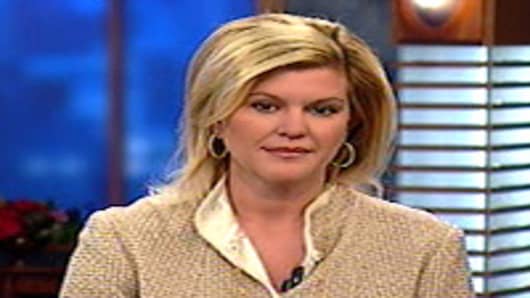Investors should "avoid financials at all costs, particularly in the banking sector" because the Senate's financial reform bill will end up restricting credit and hurt bank earnings, well-known banking analyst Meredith Whitney told CNBC.
"Politicians have proven far worse than our worst expectations," she said in an interview. "It could be very bad for banks."
Whitney cited two new credit card rules in the Senate bill as particularly onerous. One would force banks to comply with individual state caps on credit card interest rates. The other would regulate how much credit card issuers could charge merchants for using their cards.
The state caps on interest rates, she said, could make rates in one state lower than in another, causing banks not to lend in certain states.
"It's going to make accessing capital so difficult for pockets of the country," she said, particularly for small businesses that often depend on credit cards for funding.
In addition, the proposed rule on merchant charges—instead of benefiting consumers—will price community banks out of the market, Whitney said, restricting credit even more.
"Some of these regulatory proposals are going to make it so difficult for everyone involved that you'll see, I think, at least another $1.3 trillion (of credit) sucked out of the system," she said.
Instead of "jamming down last-minute regulations just to appear to be tough on banks," Whitney said, Congress should make it easier for small businesses to obtain credit.
Still, Whitney said European banks are in even worse shape than their US counterparts, and she would not invest in them "in a million years."
The drop in credit card delinquencies reported Monday was actually the result of new credit card rules that took effect earlier this year, she said. The restrictions prompted banks to exclude less credit-worth borrowers and move toward higher-end consumers, which would result in fewer delinquencies.
Looking ahead to the second half of this year, Whitney expects more consumers to lose their jobs and have even more limited access to credit. The housing market will likely see a double dip, she said, while the stock market will be "bleak."
"It's going to be rocky sledding," she said.
—Reuters contributed to this report



